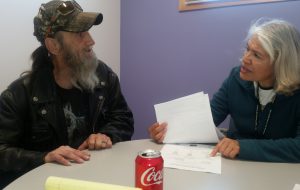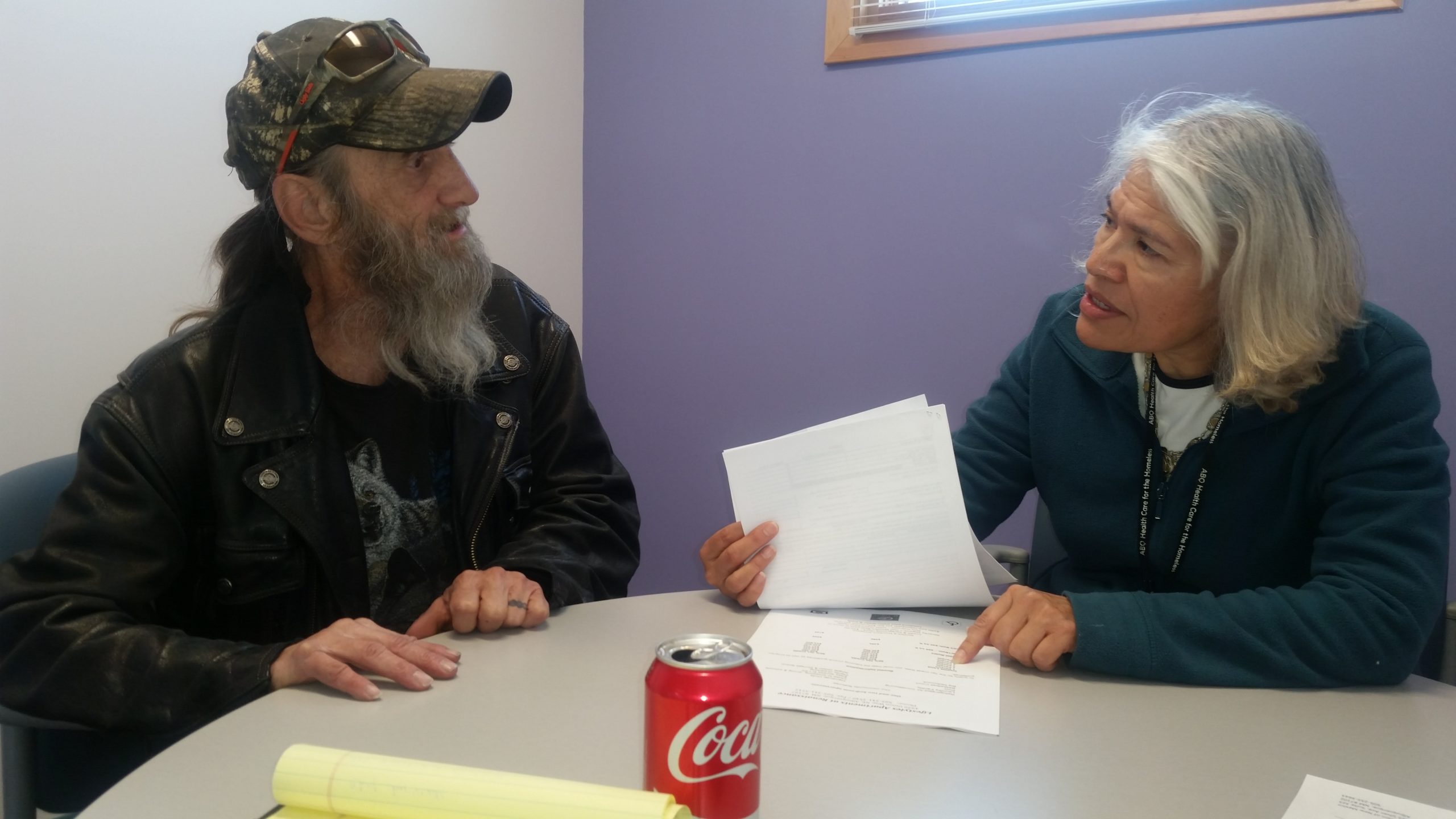Latest News
Putting the “Support” in Supportive Housing
April 11, 2017

 “If I didn’t know that I had a bed to lay my head on, it would be tough to maintain my sobriety. And without my service coordinator, I would be back on the streets. I had to relearn how to live like a “normal” person. I am now more motivated to get out the door and do the things I’m supposed to do. Sylvia is teaching me how to walk – but she is there to carry me if I need it.” – Richard K.
“If I didn’t know that I had a bed to lay my head on, it would be tough to maintain my sobriety. And without my service coordinator, I would be back on the streets. I had to relearn how to live like a “normal” person. I am now more motivated to get out the door and do the things I’m supposed to do. Sylvia is teaching me how to walk – but she is there to carry me if I need it.” – Richard K.
Those of you reading this know that SHC-NM provides permanent, supportive housing in our efforts to reduce and prevent homelessness. The permanent part is easy to understand, we house people in actual apartment homes that are theirs for as long as they abide by the terms of their lease. But what about the supportive part of the picture? For people like Richard, that is where Service Coordination begins.
Richard was homeless for fourteen years, suffering from mental illness and self-medicating with alcohol and drugs to deal with a condition he didn’t understand. A chef by trade, Richard had difficulty holding down a job because of his mental illness. “But I got tired of it all,” he explains, “it was time for me to get a normal life and I was determined to get that sobriety.” After a few false starts Richard was finally able to get a handle on his drug and alcohol addictions. But it wasn’t until he was housed by SHC-NM that he was finally able to stabilize his mental health and begin to take care of himself. He attributes that not only to having a safe place to live but to his Service Coordinator.
SHC-NM partners and contracts with Albuquerque Health Care for the Homeless (AHCH) to provide services for our clients at three of our properties and for 2 of our Housing Urban Development (HUD) funded housing voucher programs. This partnership makes it possible for SHC-NM to focus on getting Richard a safe place to live while Service Coordinators from AHCH ensure that he and other clients like him are offered what they need to stay in that safe place.
For Richard, this has made all the difference. Once safe and housed with SHC-NM, Richard was offered the opportunity to work with an AHCH Service Coordinator, Sylvia. He eagerly agreed to try it out. Through client-centered goal setting Richard identified a desire to be more mentally healthy. Sylvia worked with him to set that up and he started seeing a therapist and going to the doctor regularly. “She’s like my mom,” he says with a grin. “She tells me how I should go about [solving a problem] and then leaves it up to me. That’s the nice thing about it.” What Richard means is that he drives his service coordination plan and that neither SHC-NM nor AHCH force him to utilize services to stay housed. Because all services are client-centered and voluntary, Richard is able to make his own choices about which services he wants or needs.
“The key,” Sylvia explains, “is to let the client set the agenda. Services are not required for housing so I am very sensitive in how I approach them. I always ask their permission before taking actions on their behalf and I actively listen.” One of Sylvia’s approaches is asking the client, “What was life like for you before becoming homeless? What hopes and dreams do you have now? Are any of these long term or short term? Which do you want to take action on? What steps do you need to do to get there?” From there an individual service plan develops and clients choose what, if any, steps they want to take to achieve their identified goals.
Sylvia takes time to analyze how her clients approach their individual issues and understands that many have difficulty with change. While she often helps with getting her clients through difficult paperwork and processes, she also works on empowering them to do things for themselves. “Each person has a unique way they deal with trauma and most people don’t understand that. They have allowed me into their home to see their suffering. They have put their trust in me. Seeing their everyday struggles just to get out of bed, get dressed, take care of themselves…I have to be very careful about how I approach them.”
For some newly housed clients, simply getting out of bed and getting dressed or going to the grocery store is a big accomplishment. Richard explains, “It is the simple things that people take for granted. I was terrified of going out my door. When I first got housed I slept in my sleeping bag on the floor even though I had a bed! I kept my backpack by the door. I had to relearn everything like how to deal with a landlord.” Explains Sylvia, “Richard needs to be empowered to get out of his house and take care of his needs. I’ll take him the first time but I try to step back whenever possible.” Richard not only feels respected by this process, he is empowered. “Sylvia respects my privacy. She also lets me know that there are things I have to do on my own. I need to do that.”
Richard’s long term goal and dream is to write a cookbook of healthy easy recipes. “I am able to live a much better life now,” says Richard. “I’m not a shut-in anymore. I volunteer at Animal Humane where I walk dogs. I went fishing by myself twice last week, went to a couple baseball games. I used to avoid problems and hide. Now I face it. If I don’t understand, I call Sylvia. I have a life now and,” he says with big smile, “I’m a functioning ‘nut’ now.”


